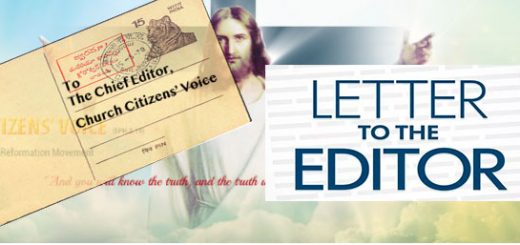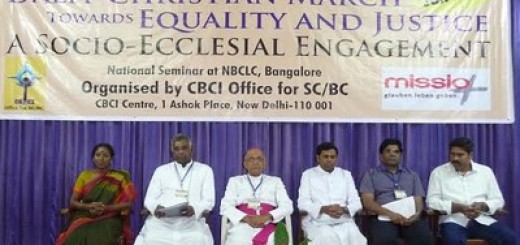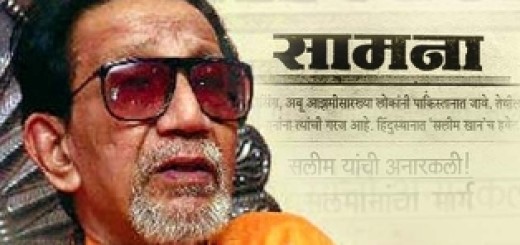“NONES”: THE NO CHURCH PEOPLE! Intro. Dr James Kottoor
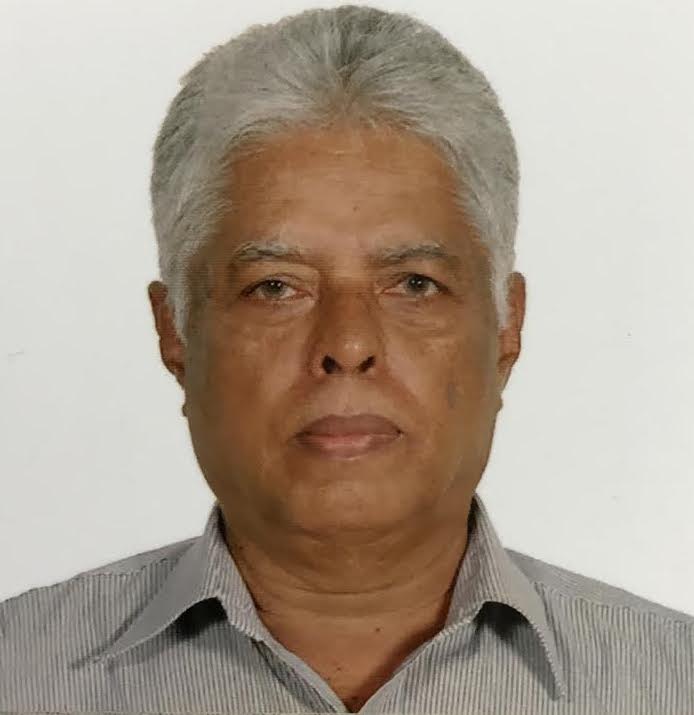
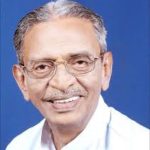 Are you a believer, agnostic, religious, spiritual or nones?
Are you a believer, agnostic, religious, spiritual or nones?
Notes: Here is a call for new set up, a non-centralised set up to cater to the needs of people not very keen on churching.
They would range from believer, unbeliever, agnostic, atheist, secular, religious, non-religious, spiritual or nones, They don’t belong to any existing churches or organized religions.
“Is God dead?” Landmark!
One historical land mark in this evolution of thinking was the Time Magazine article of 1970: “Is God dead?” That precipitated the thinking of a whole lot of people starting from US to stop having any church affiliation or their beliefs.
They describe themselves as NONES, meaning they don’t believe in the teachings of any churches but go by the light of reason and their personal conviction, which is above church teachings.
I would recommend serious consideration to the proposals of Pamplanil. (Dr. James Kottoor, Editor—Church Citizens Voice)
KIND ATTENTION C. C. V. FRATERNITY?
The Coronavirus has disrupted our lives as never before? This pandemic or its mutation is likely to be with us for some more time.
We are forced to live with it. All of us, particularly the elderly —the non-technosavvy — are placed in a disadvantageous position. The inevitable generation gap has also thrown up challenges. So long as life pulsates within us, we have to go on living with as comfort-fully as possible. Social contacts, part and parcel our existence is not in the immediate horizon with social distancing the norm. Large gatherings in places of worship, clubs etc., may not be on hand in the near future. At the moment, we the elderly, for our own good, are not allowed to join congregations. Hence we are compelled, by the forces of circumstances, to look for alternatives.
The world trend is decentralisation. For instance, the monolithic Union of Soviet Republic was broken up during Gorbachev days. So also Yugoslavia and Czechoslovakia. Smaller entities are more cohesive and democratically run. Interactions are fostered more effectively in small groups. In a crowd, individual identity is lost. It in this context, the community of NONES has relevance:
“NONES” —THE NO CHURCH PEOPLE.
Definition:
“Nones” or “No Church People” are religiously unaffiliated persons. They include people who are “spiritual but not religious”, “unchurched”, “churchless”, “unbelievers” “agnostics” and even “atheists”.
The history.
An expose by Ray Stannard Baker, a journalist, in the early 20 th century, of the “the richest church in America— Trinity Episcopal Church” lamented that the working classes as well as a very large proportion of men and women belonging to the cultured class, had become alienated from episcopalian churches.
This indifferentism, by any means, did not solely confine to the “wicked city”; but among people through-out the country — in small towns and villages as well as in large cities.
The religious “indifferentism” that emerged at the dawn of the 20 th century foreshadows the decline of institutional religions.
In August 1927, the Time magazine offered two reports on the issue: one focusing on membership losses among Mainline Protestant Churches : the other offering data related to religious affiliation among union workers compared to “professional and business men.”
During the post-Depression and the postwar years, deep anxiety would come to express itself in more ominous tones in the news media; the trend continued well into the late 1940s and 1950s.
Keeping pace with the rapidly evolving scientific world views vis-à-vis religious traditions in the context of World War II, did bring out new terminologies of unbeliefs into the popular lexicon: atheism, agnosticism, secularism along with the recognition of Darwinian evolutionary theory.
A 1940 story in Time detailed proceedings of a conference attended by more than 600 Catholic, Protestant and Jewish leaders, scientists, theologians, philosophers, educators and politicians. The participants
included Enrico Fermi, Talcott Parsons, Paul Tillich, Aldus Huxley and the notorious Eugene MaCarthy. This “Conference on Science, Philosophy and Religion and Their Relation to the Democratic Way of Life” focused on harmonising science, religion and philosophy and their true relation to the democratic way of life.
A message from Albert Einstein suggested that “teachers of religion must have the stature to give up the ‘doctrine of a personal god’….. they will have to avail themselves of those forces which are capable of cultivating “the Good, the True and the Beautiful in Humanity itself”.
Is God Dead?
The watershed moment in reporting on religious change in the 1960s and 1970s was the Time magazine’s sensational 1966 “Is God Dead’ issue, released in the eve of Easter and Passover; the symbol of a growing “culture of unbelief” in America.
The spiritual paradigm shift of the late 1960s and early 1970s added new dimensions to the media exploration of the religiously unaffiliated—the “holistic human potential.”
Einstein’s views on the subject.
In the summer of 1945, Albert Einstein typed a note to a young ensign abroad a U. S. aircraft carrier out in the Pacific, responding to the passionate letter he’d received from him the month before. A Jesuit priest has told the ensign that he had convinced the famous physicist to believe in “a supreme intellect who govern the world”. The ensign was shocked and he wrote to Einstein to offer a number of arguments against such an idea.
In his reply that came up for auction at Bonhams in New York, Einstein dismisses the claim of the Jesuit saying that from “the viewpoint of the Jesuit priest, I am, of course, and have always been an atheist”. The anthropomorphiacal concepts in religion are “childish analogies” he wrote.
The present scenario.
Americans as well as people in the developed countries are leaving organised religions in droves from hierarchical mode churches— Catholic, Protestant and others of the types all over the world. The believers disagree with their churches; they feel restricted by dogma and they are deserting formal religious organisations of all kinds.
One’s religion is often entirely determined by one’s parents. In the existing system, people are categorised on the basis of religious affiliation. The religious identity, of late, has become “the indelible stamp of Cain” easy target for being hunted and mercilessly murdered in cold blood. Religious divisions have given rise to social turmoil, wanton killings of innocents, mayhem, looting and plunder, burnings buildings of even historical value, destruction of properties and other valuable assets. Even children have lost their lives simply because they happen to be born into a particular religion for no fault of theirs. Religion has been cynically used by demagogues for narrow political ends as is happening in our country.
The overwhelming majority of NONES say they seldom or never attend worship services except weddings and funerals. PEW findings suggest that the unaffiliated are less likely on the futile search for the meaning and purpose of life. All the same they tend to be aware of their connection with nature and the earth.
The NONES have no churches.
They assemble in small groups in private residences or halls and pursue the spiritual and intellectual pursuits in informal manner as was the case of early followers of Jesus. They take care of the members of their group by providing assistance to the needy by way of food, medical aid etc.
Origins and demographics of religions.
Historically, the words religious and spiritual have been used synonymously to describe the various aspects of the concept of religion. However the word “religion” is a highly contested term with the scholars. The field of religious studies cannot even agree on one definition of “religion” and since spirituality overlaps with many aspects of human lives, it is difficult to reach a consensus for the definition if spirituality as well.
Many feel religious belief is non-essential: it may even be potentially harmful or at worst, a hindrance to spirituality. There seems to be an inherent tension between personal spirituality and membership in a conventional religious organisation. Mostly the NONES people value curiosity, intellectual freedom, and an experimental approach to religion and related matters. Many go as far as to view organised religion as the major enemy of authentic spirituality, claiming that spirituality is a private mode of reflection and private experience—not a public ritual. In contrast, to be “religious ” conveys an institutional connotation, usually associated
with Abrahamic traditions which compel the members to attend worship services, say Mass. To be “spiritual”; it also connotes personal preference and individual empowerment governed by the deepest motivations of life. Cultures that are deeply suspicious of institutional paradigms lay emphasis on higher values such as individual freedom and autonomy, secular moral values and impart more meaningful and positive connotations; while religion seems to embody negativity.
The Syro-Malabar Church.
The outfit is of peculiar character: it is neither in the Western nor in the Eastern mode and seems to fall between the schools. It’s way of worship is beyond comprehension; It still invokes the god of IsraEL.The moral/intellectual caliber of its leadership except the exceptional ones, has very little to write home about. In the olden days of subsistence/marginal agriculture and petty trade, with the majority of its members poorly educated and socially undeveloped, the clergy did provide some sort of leadership, “for a price”, for the creation of infrastructure for places of worship and educational institutions.
Once the requisite structures were put in place by the funds and labour of its members, the clerics usurped everything and took total control without even a “thank you”. For the appointment of teachers and other staff for managing the schools and colleges and admissions under the management quota exorbitant bribes are collected without any accountability, the funds are, by and large, pocketed by the clergy. The fact that salaries of the teachers are paid by the state exchequer is conveniently ignored.
Spiritually and morality are thrown into the waste dump; the energy of the clergy seems to be spent for wheeler-dealings and saving rapists and renegades. The bishops seem to be living in a fools’ paradise thinking that they can influence the politics of the state. A good number of them are like ostriches with their heads under the sand or behave like cats drinking milk with their eyes shut tight. Now a days nothing can escape from public scrutiny.
Summation.
I like to leave the matter to the better judgement and considered
views of the enlightened readers of the Church Citizens Voice.
It is for them to decide whether to get rid of the “dictatorship of
the clerical class” with their arbitrary diktats and instead opt for a
life with dignity, individuality, self respect and self determination.
THE SUGGESTION OF A ROADMAP FOR NONES’ COMMUNITY.
1.Once the Covid days are under control, and normal life is in place, locality specific informal group—“koottayama ” May be formed.
2.The “koottayama” may include people of the various Christian denominations.
3. The “koottayma” be independent of the oversight of clerics/ priests/nuns
4.Over a period of time, and on gaining experience, persons from other religions, non-religious ones; non-believers, agnostics and atheists may be allowed in the group.
5.The meetings may be held once a month initially ; later more frequently as decided by consensus.
6.The assemblies can be held in some halls.
7.Simple healthy refreshments may be served
8. All expenses be shared equitably by all the participants
9. Alcohol consumption during the meetings should be prohibited.
10. The programs of the group may include giving company’s details solace to the companion less, the abandoned and the
unwanted.
11. moral and material support to the deserving needy may be extended.
12. Medicines may be collected and distributed to the deserving with the supervision the of qualified doctors.
13. Counselling for depression and other psychological problems faced by elderly may be dealt with by qualified persons.
14.The meetings of the group may led persons selected by lots.
15.Moral, spiritual, social. environmental and other local issues may be discussed in a spirit of give and take and mutual respect.
16. It may be desirable to avoid discussions on political issues.
17. Modifications to the scope of the group be made in the light of experience gained.
18. The legit motif of NONES: respect for different views.
19. THE AIM OF THE “KOOTTAYMMA” BE “BETTERMENT” OF HUMAN CONDITION, “ENHANCEMENT” OF HUMAN HAPPINESS. “AWARENESS” OF THE EARTH AND THE ENVIRONMENT WE ALL LIVE.
Varghese Pamplanil.


